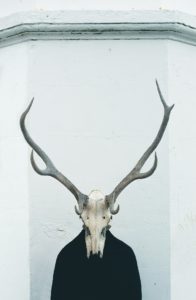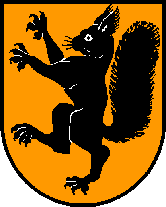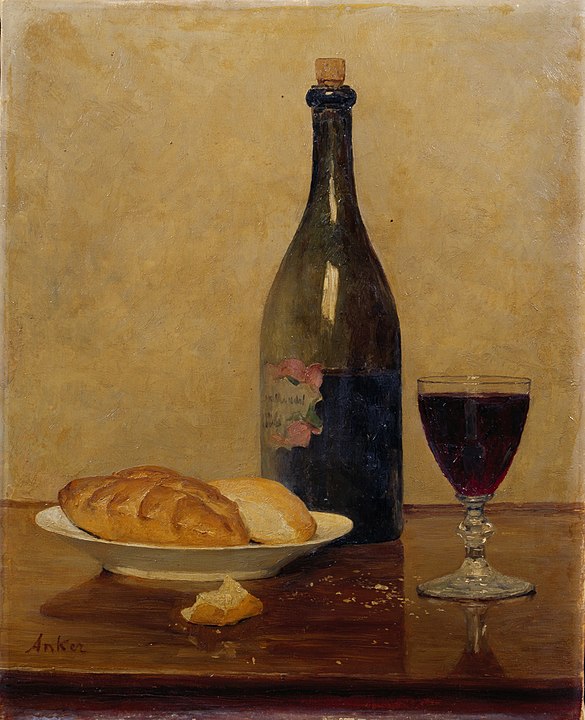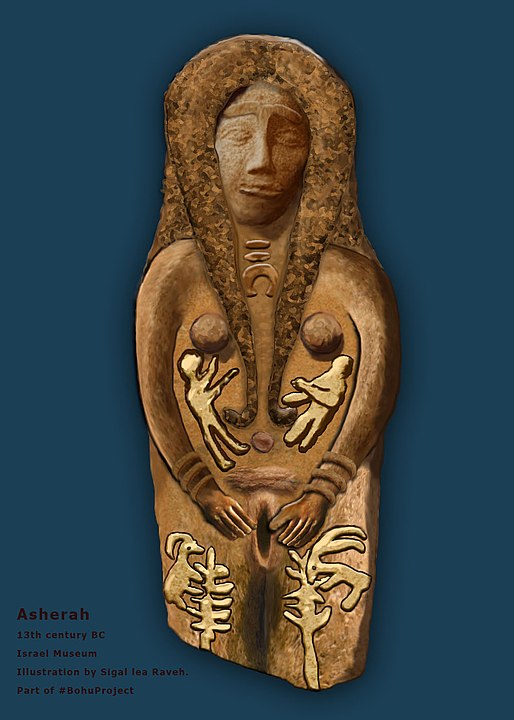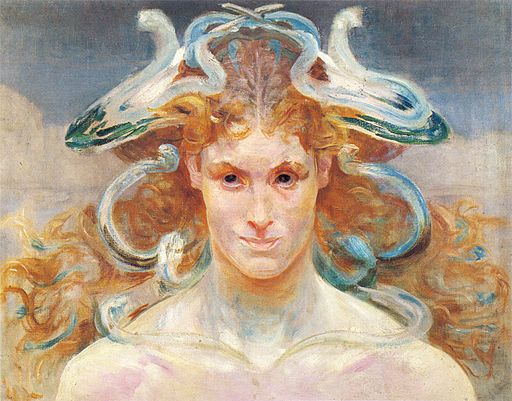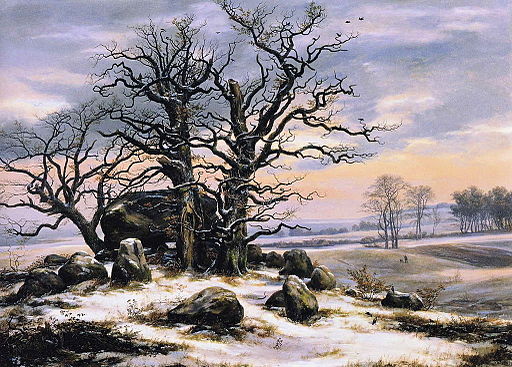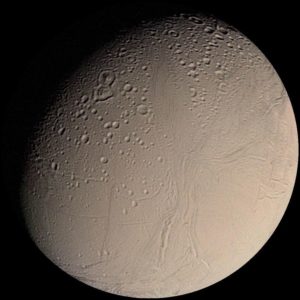
Against the face of night, a white moon hoves
into view; a hostage, bound and fevered
by a titan’s gravitic caress.
Responding to him, trammeled
by a fellow captive’s jealous chains,
her inner ice melts, yielding
to the sweet torment
of gravity’s exquisite duress,
bending and quivering,
buckling and shivering.
Four parallel scars rake down her belly,
left by a celestial tiger’s claws;
she bleeds ice-mist in torrents,
trailing veils of crane-down behind her,
shattered wings.
She wraps herself in her mist, pressing snow
to her breast to conceal her ravaged, pockmarked skin,
bleeds out her essence to the void,
heedless in her ecstasy,
leaving a trail of frozen tears behind.
Those feathers that do return to her,
as she’s slowly devoured by her lover’s
ungentle embrace,
fall back to her skin like knives of cold stone.
Self-destroying, self-creating;
blinded by her rapture,
she whirls around her beloved,
entranced; while within her laboring core,
dragons struggle to birth themselves
through the caesarian cuts
left by the tiger’s surgical claws;
strive to shatter the shell of their mother,
their ice-white egg.
The heat within her heart
that engendered them,
will, in time, spell their dissolution,
when she gives herself up to her lover entirely,
dissolves herself and spreads out
as a final shimmering ring
of transitory ice.
And so, with each pass
of the orbital dance,
the universe pauses,
waiting to see
what kind of fabulous monsters
have been born.

 The metal of the plow drives through black earth,
The metal of the plow drives through black earth,